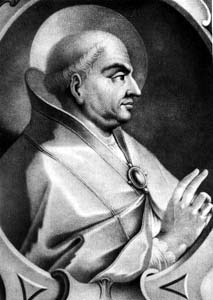[I wrote this poem many years ago after reading through a large number of oral-tradition accounts from survivors of the Holodomor, as well as a more abstract book on the same topic.
The word Holodomor in Ukrainian means "death by starvation." This event, for those who have forgotten or never heard, took place in 1930-1933, when about eight million people starved to death, in Ukraine and throughout the Soviet Union, due to entirely man-made famines. These events took place as the result of Stalin's five-year plan to rapidly industrialize the Soviet Union. They were entirely caused by Soviet authorities and to an extent weaponized by those same authorities to break the traditional peasantry and nascent resistance and independence movements. The primary cause of starvation was not an absolute lack of food, but the mass collectivization of agriculture (designed to transfer labor to industry) and the forcible mass requisition of grain by Soviet authorities. This grain and other agricultural products was then exported overseas to earn the money and parts and expertise desperately desired to fund new, ambitious industrial projects.
In these events, the Western world played an absolutely necessary role, including the United States, which incredibly chose the year 1933 to recognize the Soviet Union and open trade with it. This rapprochement between the Stalinist Soviet Union and the West was made possible largely by the efforts of (ironically) Western capitalists eager for trade opportunities, as well as numerous writers and journalists producing pro-Soviet propaganda from Moscow and elsewhere and who denied either the existence or extent of the famine or explicitly justified it in the broader interests of Russia's progressive advancement and modernization. The most famous of these journalists was Walter Duranty, whose dismissive quote about breaking eggs opens the poem below. The poem also features numerous other paraphrased quotes from Duranty, contemporary sources, and above all survivors of the famine.
In the first instance, I offer this poem today as a statement on the present state of the world, and in particular in the face of the unconscionable violence against innocents being carried out throughout the world today: among others in Ukraine by the Russian military, and in Gaza by the Israeli military. In particular, it is offered in response to Western apologists for Israeli war crimes, who in their mix of indifference to suffering innocents, moral cowardice, perverted ideology, and brute self-interest eerily echo their predecessors of the 1930s. In all candor this poem was forcefully brought back to my mind by the remarkable experience of watching Benjamin Netanyahu's address to Congress.
Regardless of the particular details, and regardless of all copy-book debates over politics, propaganda, fact-checking, geopolitical alliances, nationalism, racism, colonialism, self-determination, self-defense, military policy, international law, existential threats, and/or "moral equivalency," the overall point made by the poem is a deliberately universal and theological one: that every murdered, brutalized, or starved innocent is Christ; and that to be ultimately indifferent to his death is as much as to kill him yourself.]
Holodomor
Murder by starvation
a simple phrase,
a simple tune,
to be glossed over and forgotten.
Making an omelet
takes breaking a few eggs—
so a man said
once upon a time.
The well-coiffed, comfortable people
with their dreams of tolerance and salvation
their love of expediency
their adulations and their triumphs
they have seen You dying on the streets,
your body swollen, your fists clenched,
your eyes glazed over like an animal's,
they saw you, my Lord, and they did not do you the honor
of turning away, denying, or condemning.
They did not say
that you were guilty.
They did not say
that you were not there.
They just said
you were a broken egg
to be spoken of
glossed over
and forgotten
forever.

